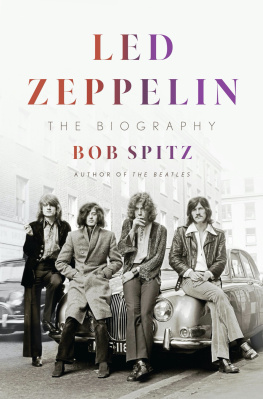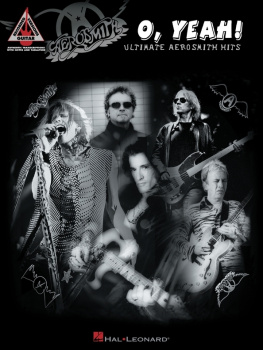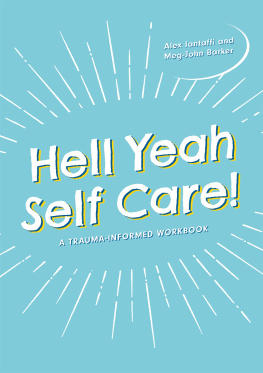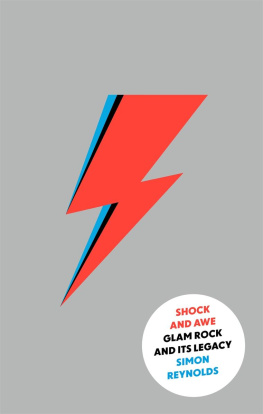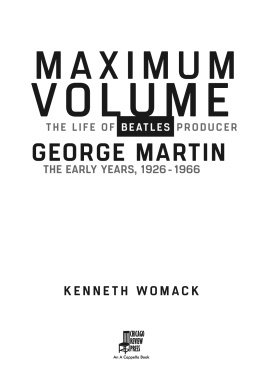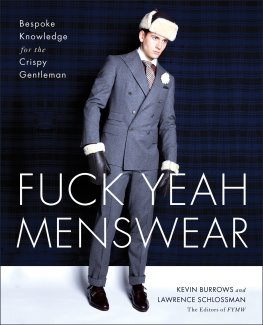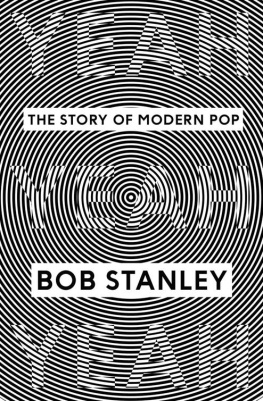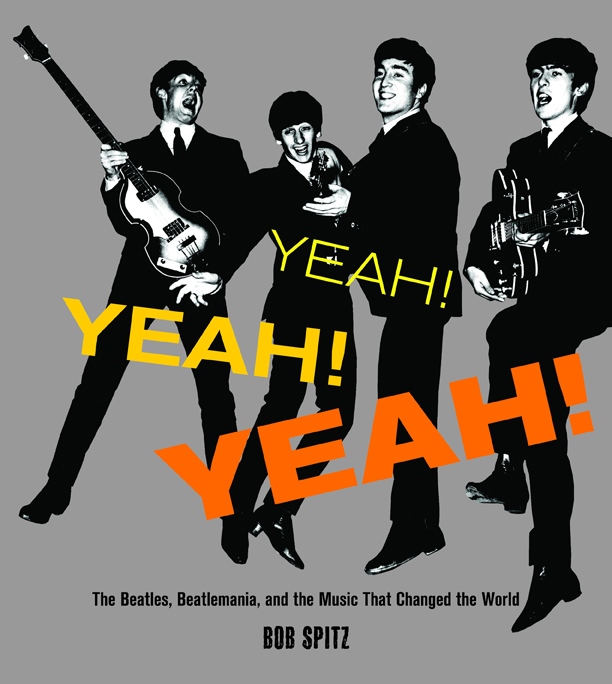Copyright 2007 by Bob Spitz
PHOTO CREDITS
Getty Images / Hulton Archive, p. i. Mirrorpix, pp. viii, 14, 32, 52, 6061, 72, 88, 112, 134, 154, 170, 188, and 206.
Corbis, p. 221.
All rights reserved. Except as permitted under the U.S. Copyright Act of 1976, no part of this publication may be reproduced, distributed, or transmitted in any form or by any means, or stored in a database or retrieval system, without the prior written permission of the publisher.
Little, Brown and Company
Hachette Book Group
237 Park Avenue
New York, NY 10017
Visit our website at www.HachetteBookGroup.com.
The Warner Books name and logo are trademarks of Hachette Book Group, Inc.
First eBook Edition: October 2007
ISBN: 978-0-316-02269-9
For Lily and Her Posse:
Sylvia, Sarah & Lineth
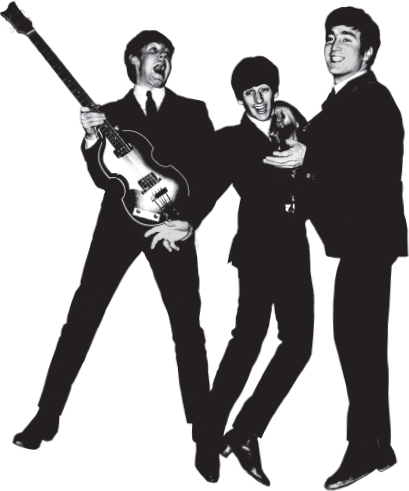
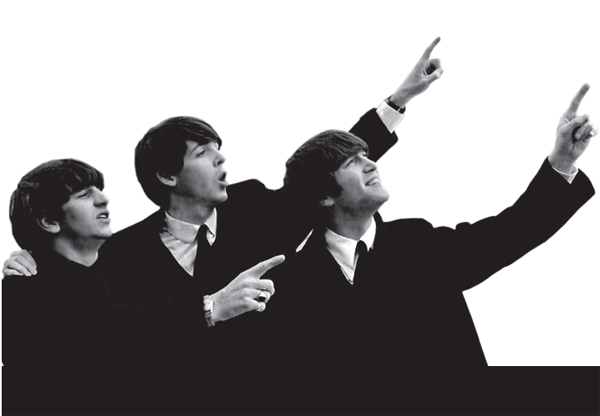
Miracles are for dreamers, John Lennon once complained to a friend. Of course, this was long after an extraordinary event transformed him into a world-famous figureand following a night when his dreams were most likely as vivid as an action-adventure movie.
As miracles go, this one would last a lifetime.
It occurred when John was sixteen, on a blistering hot Saturday afternoon, July 6, 1957, in a place that catered to divine intervention: St. Peters Church in Woolton, a village on the outskirts of Liverpool, England. John and his friends waited all year for the churchs annual garden festival, which was the biggest social event on the village calendar. It seemed as if the entire community turned out to mingle, listen to music, and await the crowning of the Rose Queen at the conclusion of the days festivities. There was something for everyone to enjoy, plenty of attractions to dazzle the eyes. Dozens of stalls covered the grounds that separated the sanctuary from the old church hall and spilled over onto two surrounding fields like a carnival midway. Long tables were set up on the grass, covered with sandwiches, cakes, and lacquered candy apples. Used books were stacked for sale, and racks of clothing attracted bargain hunters. Lemonade stands were posted across from wooden booths where children played ringtoss, darts, horseshoes, and other games to win fabulous prizes.
For John, the festival was an all-out blast. No day ever took so long to arrive, passed so quickly, or seemed as magical. But this year, a special thrill raised his anticipation.
In the past, only military bands had been invited to entertain at the festival. The crowds that lined the church field would cheer as men in stiff blue uniforms played marches and other patriotic music to pump up the excitement. But a crucial change had been taking place that affected what would be heard this year. Kids had begun listening to new types of music, including rock n roll and something called skiffle, a kind of souped-up folk music that had started a craze among British teenagers. Skiffle caught on because it was so easy to play; all anyone needed to form a skiffle group was a guitar or a banjo, a rippled wash-board, and a homemade bass, made by poking a broom handle through an upturned metal bucket and attaching a cord to pluck. The sound they made was unimportant. Skiffle was all about having fun.
What Is Skiffle?
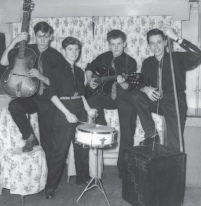
Skiffle group the Rebels, circa 1956.
TERRY CRYER/CORBIS
Before rock n roll caught fi re in the Liverpool clubs, jazz ruled. During intermissions, however, some of the musicians cobbled together a confection of sounds to fi ll the gap. Theyd play homemade instruments like a tea chest bass, which was an old washtub with a strange broomstick-and-rope attachment, accompanied by a washboard and perhaps a guitar. Called skiffl e, the music was an odd assortment of American blues, spirituals, and folk songs like Rock Island Line and Pick a Bale of Cotton.
It was the offhand charm of skiffl e that captured Great Britains imagination. Rock n roll was too much, too fast; skiffl e was a compromise. It was music we could play right away and sound okay doing right away, said the Quarry Mens Eric Griffi ths. And it enthralled Liverpool audiences, not because it was new but because it was so unexpectedly familiar. It wasnt long before most of the 328 clubs in Liverpool were involved in some sort of skiffl e show. And its greatest fan was a fi fteen-year-old boy named John Lennon.
John and a few friends from the neighborhood had started their own skiffle group called the Quarry Men, after Quarry Bank High School, which they attended. It wasnt really much of a band, nor was John much of a musician. He only knew a few chords on the guitar, which he beat the daylights out of, according to a friend. And the band itself just made sort of a general noise. But that did not seem to matter. The Quarry Men looked professional. They put up posters all over town and played at parties and local talent contests where you werent judged as much on ability as you were on spirit.
As it happened, one of the boys mothers convinced the church festival committee that a skiffle band would give this years gala an extra shot of excitement, and she proposed the Quarry Menmost of whom, she assured the committee members, had been confirmed at St. Petersas the obvious choice.
The boys were understandably ecstatic. It wasnt simply the honor of playing there that excited us, recalled Nigel Walley, who functioned as the groups manager. Everyones parents and grandparents would be there, as would all our friends. So there was every opportunity for them to make a powerful impression.
John was especially restless. As the leader, he thought of the Quarry Men as his band, and he was eager for them to put on a good show. Besides, he knew that his mother and aunt would be among the crowd, and it would be their first chance to see him perform.
The Quarry Men werent scheduled to play until four oclock. In the meantime, the boys drifted around the grounds and stopped to watch a Liverpool police dog obedience display, featuring Alsatians trained to jump through flaming hoops. The Band of the Cheshire Yeomanryan outfit comparable to the US National Guardwas on the uncovered stage, warming up the crowd. It wasnt long before they were replaced by the Quarry Men, who played a spirited set of songshalf skiffle, half rock n rollthat was greeted enthusiastically by the teenagers pressed around the stage.
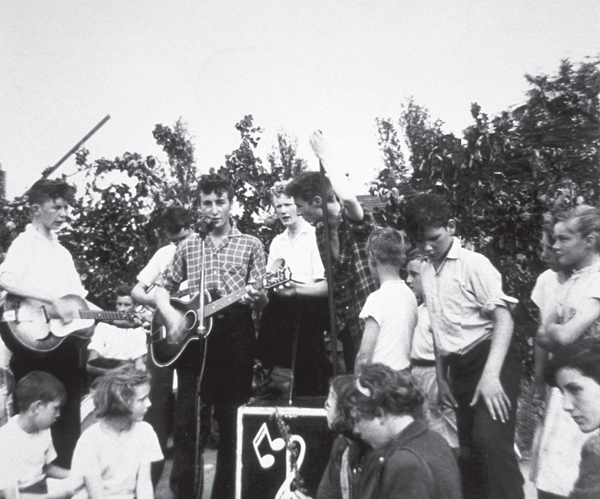
The Quarry Men perform at the Woolton church fete, July 6, 1957. The photo was taken fifteen minutes before John Lennon was introduced to Paul McCartney. From left to right: Eric Griffiths, Rod Davis, John, Pete Shotton, Len Garry. LONDON FEATURES INTERNATIONAL
John recalled, It was the first day I did Be-Bop-A-Lula live on stage, and one can only imagine how he rocked out. The singing was no doubt loud and raunchy, the sound only slightly better than awful. John could never remember the words to songs, preferring to make up his own, which were often hilarious, as he went along. Sometimes he stumbled over words or just grunted, it made no difference to him, but today his improvisation was fairly sharp and witty. He spotted his aunt Mimi standing in the crowd and inserted a few clever lines about her on the spot, to everyones delight.


